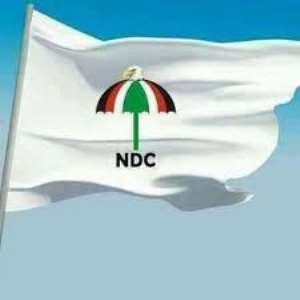
For any political party, especially one in power, maintaining a strong connection to its grassroots is the lifeblood of its continued success. It’s not enough to implement national policies; the real test lies in ensuring those policies resonate with and benefit the very people who put you in power.
This connection, this symbiotic relationship, is often the determining factor in future electoral victories. So, with the NDC administration under President John Mahama, the crucial question is: are they on track in tending to their grassroots?
The challenges facing a party in power regarding grassroots engagement are multifaceted. Firstly, there’s the inherent disconnect that can develop between the party’s leadership, now focused on national-level governance, and the day-to-day concerns of ordinary citizens. Priorities shift, perspectives broaden, and it’s easy for the voices of the grassroots to get lost in the noise of political expediency.
Secondly, the weight of responsibility that comes with governing often necessitates difficult choices. Economic austerity measures, for example, may be vital for national stability but can disproportionately impact the livelihoods of the rural poor – traditionally a key demographic for the NDC. This creates a tension between the need to govern responsibly and the obligation to protect the interests of those who form the party’s base.
Assessing the NDC’s performance under President Mahama requires looking at specific areas. Is the party actively engaging with its grassroots? Is it investing in programmes that directly benefits the grassroots, such as education, healthcare, and infrastructure development in rural areas? Is it creating opportunities for upward mobility and economic empowerment for its supporters?
Anecdotal evidence suggests a mixed picture. While the government is implementing various social intervention programmes, concerns remained about the perceived gap between promises and reality. Some argue that the benefits of economic growth are not trickling down to the grassroots, leading to disillusionment and a feeling of being forgotten.
Furthermore, internal party dynamics play a role. Factionalism, victimisation and internal squabbles, often exacerbated by the pressures and trappings of power, can erode trust and weaken the party’s overall effectiveness in connecting with its base.
Ultimately, the success of any party in power in nurturing its grassroots depends on a conscious and consistent effort to listen, understand, and respond to the needs of its supporters. It requires a commitment to transparency, accountability, and a genuine desire to serve the interests of the people who entrusted them with power.
It is early days yet, but there are perceived signs that the NDC administration is facing some challenges in maintaining a strong connection with its grassroots. The perceived disconnect between the party’s leadership and the everyday concerns of ordinary citizens, coupled with internal challenges and economic pressures, contribute to a sense of unease amongst some of their core supporters.
Whether or not these factors will directly contribute to their electoral performance is a matter of ongoing debate and analysis. However, the lesson remains clear: a party in power must never take its grassroots for granted.
Continuous engagement, responsive governance, and a genuine commitment to the welfare of its supporters are essential for long-term political success. Ignoring this critical connection risks alienating the very foundation upon which its power rests.
Anthony Obeng Afrane


